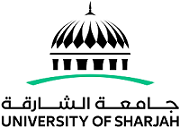الملخص
The focus of this research is on the analysis of the media role in Sharjah consultative council (SCC) elections. It assesses how social media contributed to the success of the candidate in the 2019 Consultative Council of Sharjah elections. It examines how media influences what voters consider important in a political campaign. The research draws on political marketing theory to examine the effectiveness of the strategies used by electoral candidates to promote themselves and their programs in shaping voters' decision during the elections. The research uses a quantitative method, namely a survey (N=300) that was conducted in various locations in the Emirate of Sharjah. The SPSS software version 26.0 was used for the analysis, where test such as descriptive analysis, cross-tabulation, t-test as well as ANOVA was performed. Based on the analysis performed, the findings showed that the demographic variable mainly gender affected the voting decision of the participants. The t-test results for the responsesshow that the communication skills, candidate promises, size and organization of campaign as well as following the news of the candidate campaign all influenced the voting decisions. The findings emphasize that political marketing, a distinct area of marketing, has evolved which necessitates the candidates to incorporate social media into campaign planning. Future campaigns will need to regularly adapt to this important platform as voters continue to gravitate toward the social media for social engagement. Voters are political consumers, so a politician needs to have a strong marketing presence during the campaign to make sure their message is heard. The findings recommend that main goal of a campaign is to build the candidate's brand through market segmentation, which can then be utilised to improve social media engagement. Presidential candidates must develop a brand that people can identify with and support because they believe it is in their best interests. Because social media platforms

